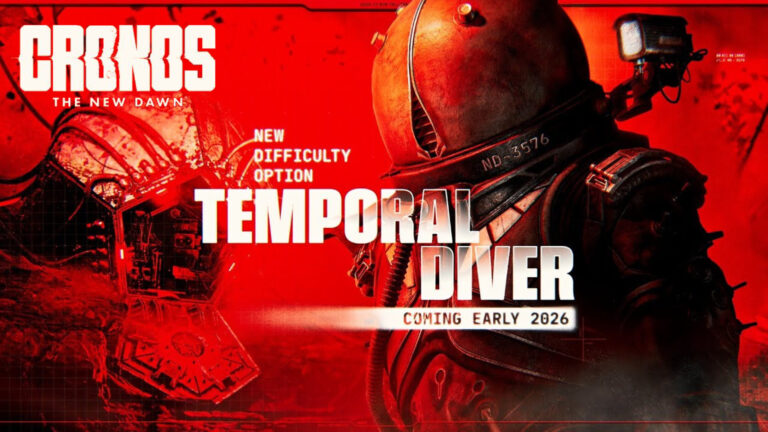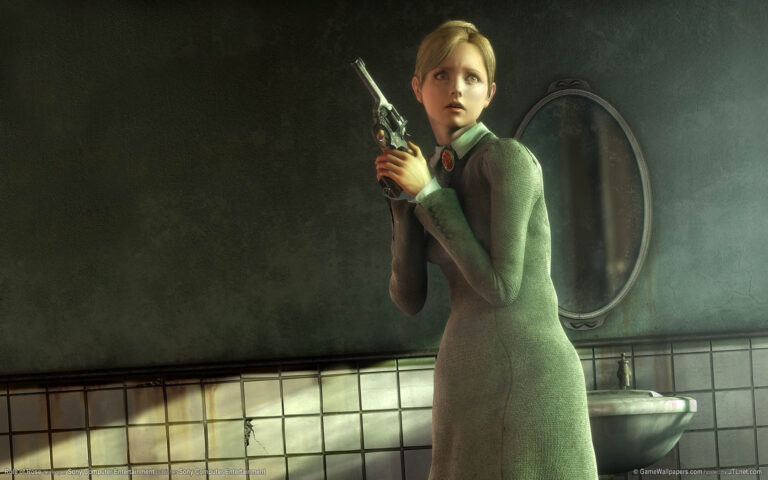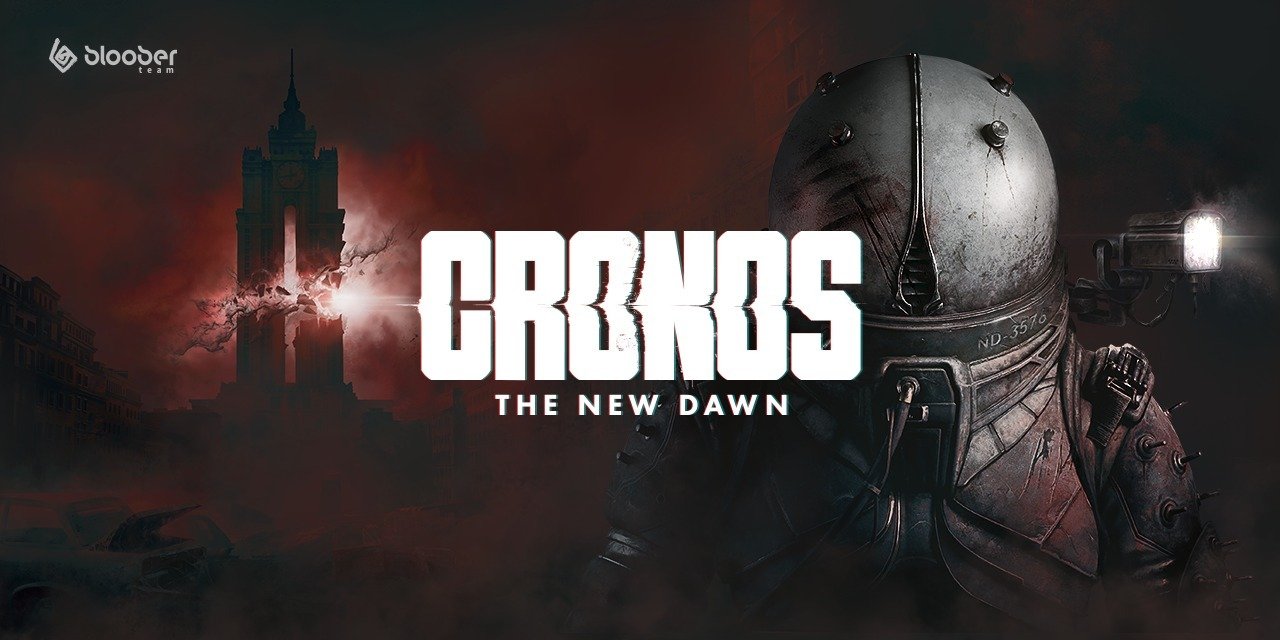
Announced just days after the launch of their excellent Silent Hill 2 remake last year, Cronos: The New Dawn was a departure from much of Bloober Team’s previous work, with a heavier focus on combat and a somewhat futuristic setting, leaving horror fans curious as to how the project would shape up.
Cronos had already been in development since 2021, despite not being announced until 2024, so even though it seemed like it came out of nowhere after the SH2 launch, it is a full-length horror experience. We’ll be diving in deep to see what it’s all about and how it stacks up to its peers and its influences.

Just to get it out of the way early, Cronos pulls heavily from its influences, the most prominent of which would be the Dead Space series and the later Resident Evil games (5, Revelations 2, remakes,) among many others.
While it pulls heavily from those games, it does still manage to have some voice of its own with some stand-out combat mechanics as well as using a certain art style that’s reminiscent of Bloober’s previous game The Medium. This includes the inclusion of allegory or reference for the history of Poland and its architecture, with the art of Polish artist Zdzisław Beksiński heavily mixed in. Cronos also mixes in a heavy body horror element with a mix of things like the Alien series, John Carpenter’s The Thing, H.R. Giger, and a few others when it comes to these elements.

What it accomplishes with its art and sound design is simply sublime in most areas, with insane detail in the visual art elements, especially in its environments and vistas leading you through its world. The game is always giving you something exciting or terrifying to look at and explore. The scattering of potentially-dead bodies of enemies are constantly strewn about the world, and you never know which ones will spring to life at just the right moment, and the oozing, undulating biomass that populates so much of the world constantly looks alive and skin-crawling as you explore, with all sorts of nasty surprises waiting around every corner.
The sound design is extremely oppressive and foreboding, and gets highly tense and visceral when you end up in combat encounters, making most of the experience have an intense amount of tension, dread, and fear throughout. However, the music score during many of the narrative scenes and the general exploration/save room music leans towards a 1980s gritty synth sound that doesn’t quite match the aesthetics or mood of the game, leaving many of those scenes feeling out of place.
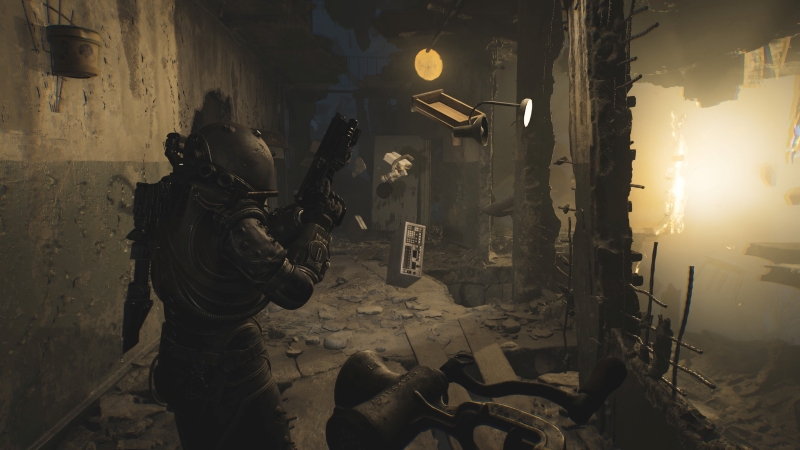
Moving on to the gameplay, Cronos plays a lot like a Dead Space or over-the-shoulder Resident Evil game on the surface, but with some particularly unique combat mechanics that separate it from its influences. It features a great sense of weight and visceral fury to it. The general exploration is full of relatively fun traversal puzzles and item retrieval, as most games of its style are, even if backtracking rears its head a few times and some of the environments start to feel a little same-y at a certain point.
When it comes to the combat, there’s a lot to talk about, since you’ll be doing a hell of a lot of it, and it’ll take up a good amount of your time spent with the game. The most important thing to mention about the combat is that I have no doubt in saying that Cronos is one of the hardest action horror games you’ll ever play. The combat is punishingly difficult and never lets up, and when coupled with the very scarce amount of resources you have at your disposal, this game requires a mastery of the combat system early on, just to get past the early encounters.
Past the early encounters, it just progressively keeps getting more difficult as it goes until the very end of the game. A first playthrough of Cronos will feel like playing any other action horror game on the highest difficulty, and this will be a barrier for enjoyment for many players, since there are no selectable difficulty options when starting a new game.
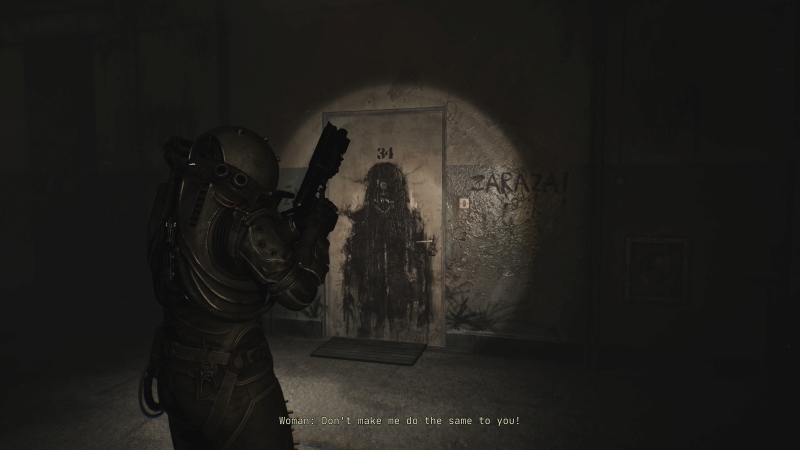
Within the realm of combat, you’re constantly juggling your resource management and trying to get the most out of what little ammo you have, while also trying to not get hit by the onslaught of enemies you’ll often be faced with simultaneously. This is while you’re also actively trying to stop the enemies from merging with dead bodies on the floor and becoming more powerful and harder to kill in the process. This makes the combat extremely frantic and makes time of the essence, since the more you take your time trying to play defensively and the less attention you pay to what every enemy is doing, the more chance you’ll have to spend even more resources trying to kill them after they merge.
For a while, this loop and high difficulty of combat can lead to a satisfying learning curve once certain things finally start clicking for you, but since it never stops ramping up that learning curve, the whole game just ends up feeling like an unbalanced, uphill battle, which can lead to a good amount of time feeling wasted for many. Since there’s no selectable difficulty levels for the game, this might be a hurdle for many players jumping into the game.
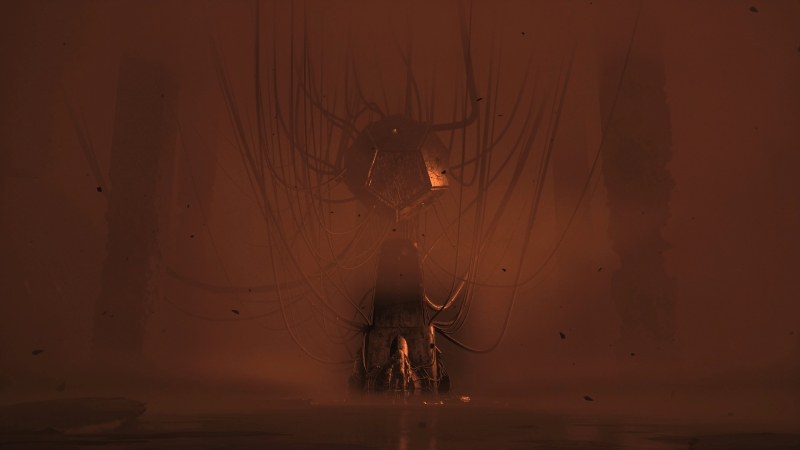
Thankfully, there is a pretty generous auto-save system that will save your game before most major encounters, but the brutal difficulty will make it a necessity to be re-loading those saves pretty often to get past the rougher encounters. When 2-3 hits from any enemy is enough to take you down (even with health upgrades) there’s a lot of trial and error required to get through the majority of the fights.
The navigation outside combat usually isn’t too difficult, despite not having a proper map system, as you’ll have to rely on an on-screen compass with waypoints to find your way around instead. This works well for the most part, but it can be easy to get turned around in certain areas.
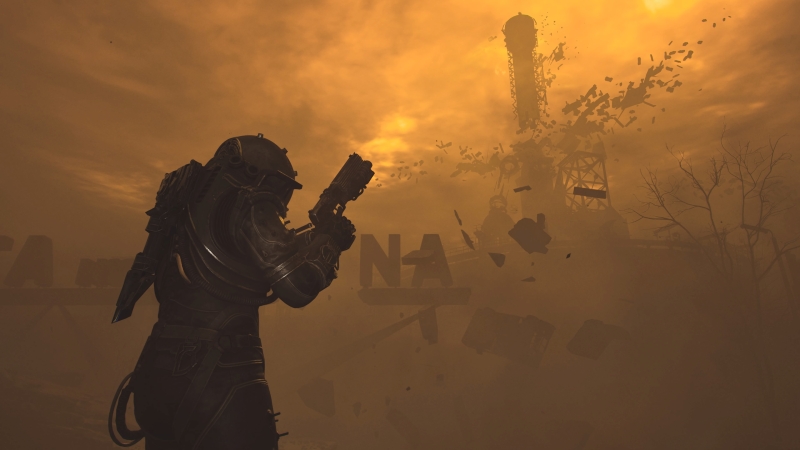
Moving on from the gameplay, we can talk about the narrative, which generally felt like a failure despite having some great visual elements to build the world and its characters, as well as some good voice acting to give them life. The writing and pacing just feels far too slovenly and vague to really drive home much emotional resonance or meaning, and tends to meander with nearly poetic levels of prose, yet has very little to ground it or give meaning to the events of the story very often.
There are moments of poignance and clarity in the dialogue here and there on the topic of AI and machines, art being tied to the human experience, and other similar topics, but it is few and far between, often not giving much motivation to keep yourself invested in playing through the game’s quite long length and high level of difficulty. The narrative generally felt fairly trope-filled and derivative for most of its length, feeling like dozens of other sci-fi and post-apocalyptic stories we’ve seen many times before. It isn’t until a few of the twists towards the end of the game that much of the actual story is revealed, and by then, I just felt tired of trying to follow the tiny threads of story that were attempting to tie things together.

The element of trying to work in little touches of Polish history and aesthetic into the narrative felt very loose at best, and didn’t contribute in a meaningful way aside from building the setting. Fairly typical sci-fi topics along with many other narrative topics like pandemics, suicide, loneliness, and others were attempted to be worked into the story, but they rarely came through in ways that felt unique among the tons of other similarly-themed games and movies over the years.
As mentioned before, Cronos will likely be a lengthy, nearly 20-hour experience for most players, between watching all the cinematics and dialogue options and the constant trial-and-error of combat and resource management, and it’s a long time to stretch out a narrative that doesn’t have a lot to say, which also adds to the tedium and tiring nature of much of the gameplay. It makes the pacing of the game feel a little closer to RPG territory (think: Fallout) than most action horror games, and it feels like a mismatch for what these kinds of games usually try to accomplish, which is a bit jarring of a combination.
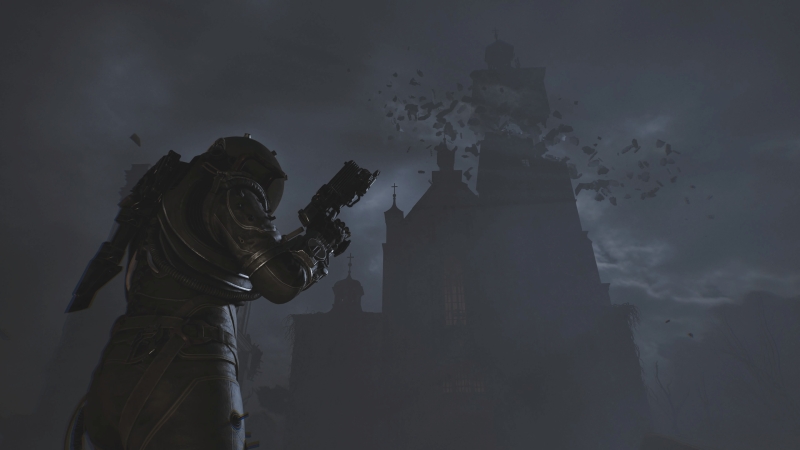
At the end of the day, Cronos has a lot of missteps that hold it back from its potential, where it’s fantastic audiovisual presentation and engaging combat are subverted by a lackluster narrative, slow pacing, and massively unbalanced difficulty, making the overall package just merely good, but not great.
I really wanted to enjoy Bloober’s first original IP with a full-fledged combat system more than I did, but I have hope they’ll be able to explore action horror again later, having learned a bit about how to balance and pace things out a little better.
 (7.5 / 10)
(7.5 / 10)
Good
 (7.5 / 10)
(7.5 / 10)Rely on Horror Review Score Guide
A PS5 review copy was provided by the publisher.

